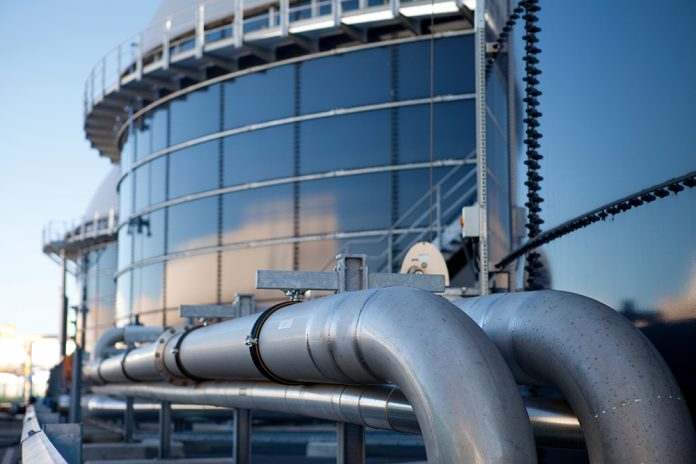The UK water industry has great potential to generate sustainable energy, but for many it’s unrealised.
Anaerobic Digestion, whilst not a new invention, is rapidly being adopted by many companies in varying sectors throughout the UK. In just 10 years the energy supplied by UK AD plants more than quadrupled, rising from 3.6 terawatt-hours in 2007 to 15.8 terawatt-hours1 in 2017 with around 80 new plants commissioned in 2016 alone.
Energy generation from sewage gas has experienced considerably less growth in the last decade, seeing an increase of only 201 GWh of electricity generated in the same time period that AD plants increased electricity generation by more than 1,700 GWh.
The UK’s biomethane industry is forecast to see exponential growth over the next few years, with the Anaerobic Digestion & Bioresources Association (ADBA) predicting a 50% rise in the number of operating plants and investment of up to £400m by January 2020.
A profitable, energy-efficient and proven method to treat wastewater
Treatment plants investing in Anaerobic Digestion systems are cutting their reliance on the national grid by utilising sludge at their energy intensive plants to generate electricity on site and save millions of pounds annually.
The process itself, not just energy generation has cost reducing benefits also; the digestion process enhances stabilisation of sewage sludge, significantly reducing the mass of wet sludge, cutting disposal costs and producing high-quality effluent which can be used on farm land.
Anaerobic digestion plants offer carbon savings – switching from thermal drying to AD can reduce CO2 emissions by thousands of tonnes per year.
AD can facilitate sustainable thermal drying using waste heat from electricity generation or combusting biogas onsite with a biogas boiler solution.
Profiting from Methane
Captured biogas can be upgraded so it has all of the function of natural gas, making it a versatile and profitable resource. On site the fuel can be used to generate heat, electricity or steam as well as in chilling processes, whilst exported biomethane can be injected onto the grid for domestic, commercial and industrial use.
Biomethane powered transport is growing in popularity in the UK, with private and public sector organisations adopting the sustainable gas for use in upgraded buses, refuse trucks and general fleet vehicles.
Generating heat on site or biomethane injection to grid is currently being incentivised through the UK Government’s Renewable Heat Incentive (RHI) scheme which pays participants of the programme on a tariff basis, offering a secured 20 year income.
Experience you can trust
Over the last 19 years BioConstruct GmbH have built and successfully commissioned over 260 AD plants throughout Europe, currently operating over 22 of their own AD plants. Partnering with Shaw Renewables Ltd and New Energy Ltd. the innovative company have been successfully completing UK projects and have built an extensive infrastructure, covering all elements of AD servicing, operations and maintenance.
Their plants boast an impressive average electrical output of 97% with over 200 MWh of electricity generated by their commissioned plants.
Over 475,000 tonnes of organic waste is processed through their UK plants, either generating electricity and heat on site or being exported to the grid.
Bioconstruct’s Industry leading technology is easy to operate, profitable, robust and sustainable.
Offering a truly turn-key service, the AD experts design truly bespoke plants that fit your requirements and provide support throughout the planning, development and commissioning process.
To find out more about maximising your sludge contact the biogas specialists
t: 0151 424 1433



